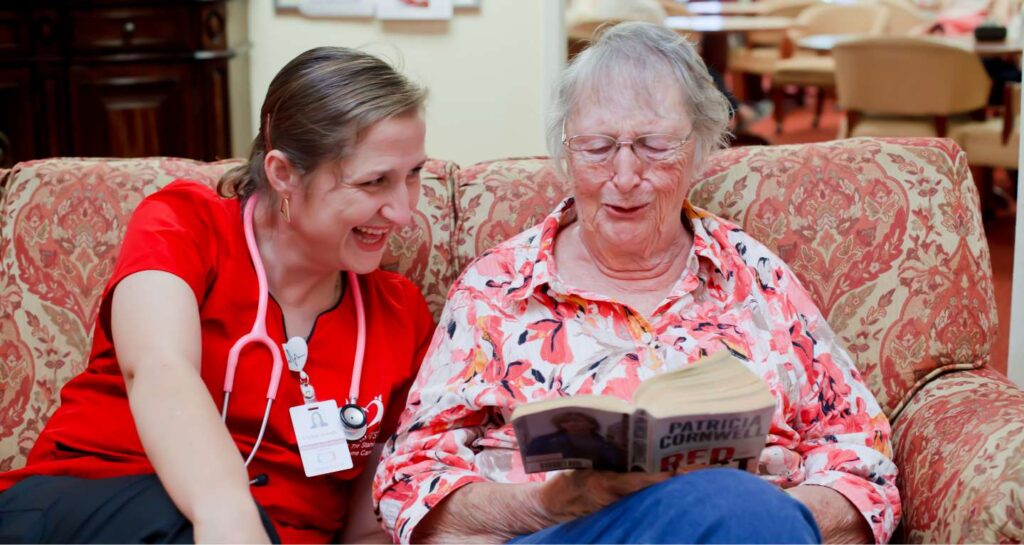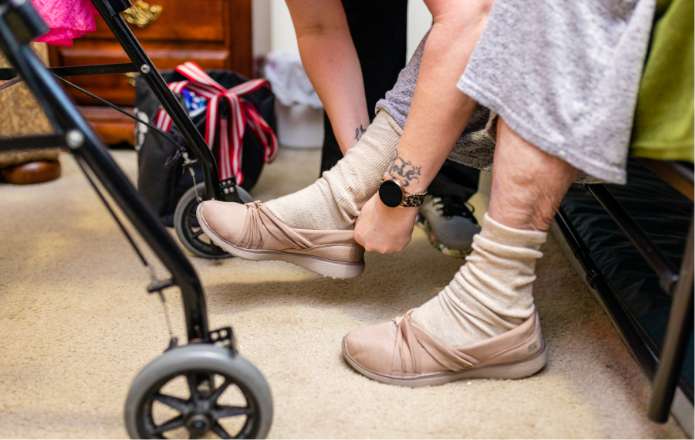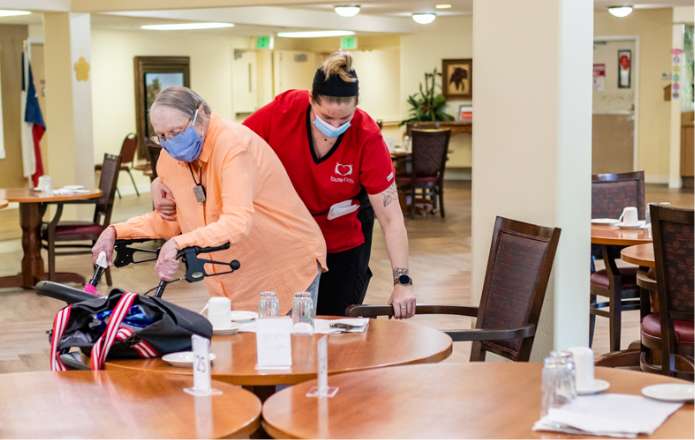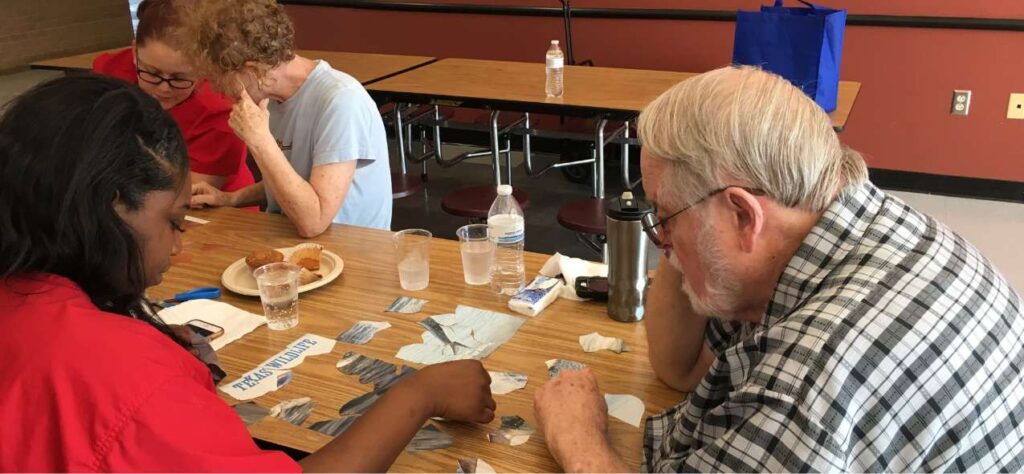COGNITIVE CARE
Our approach to Caring for individuals with Cognitive Challenges is to create an environment built on the knowledge that each individual’s priorities differ.

overcome cognitive challenges
“As an individual with dementia, I value some outcomes more than others, depending on my personal preferences. Also, my priorities are different than others who have dementia and this is honored by my care providers.”
It is important for the individual with any cognitive challenge:
These are the principles our Dementia/Cognitive Care programs are based on. All of us experience a hiccup in our memory at some point but this does not mean we have a form of dementia. For example, people with early-stage dementia have trouble with short-term memory; keeping track of personal belongings, paying bills, and problems remembering everyday tasks that were not a problem before.
If you or a loved one is experiencing unusual memory problems, it is important to consult with your doctor right away. Getting the proper diagnosis allows the maximum benefit from treatments that are available and time to properly plan for the future. Note: it is always a good idea to consult an attorney prior to a diagnosis of dementia; this allows families to get affairs in order, such as Power of Attorney (Medical, General, etc.), wills; any legal documents that may be challenged after diagnosis.
Our experience in caring for individuals with all forms of cognitive challenges show consistency is an important key to successful daily living, not just for the individual diagnosed but for their families as well.
Working with professionals who have experience in cognitive care can help you navigate through your daily life. Whether your loved one is in early-stage, middle-stage or late-stage of the disease, our trained and certified staff can provide the care and support you need.


ASSESSMENT, CARE PLANNING AND INVOLVEMENT OF OUR CLIENTS AND THEIR FAMILIES
Developing an effective plan of care for each individual based on a complete assessment is imperative. Everyone should have a thorough assessment with input from the social circle that supports their care. This social circle may include the person being cared for, their family, physician, friends, and our staff. The assessment process should result in a detailed plan of care outlining the areas of concern and established goals. These goals should consider the unique needs, the preferences and life history of the individual. We reassess and update the plan of care and service plan as the individual’s needs change.
Our programs promote the involvement of the people we care for, their family, and staff. This includes the development, implementation, and evaluation of the Plan of Care and our service delivery, including education and support. Our program responds to the ongoing and changing needs of the person being served.
Five signs care is needed for individuals with cognitive challenges:

Cognitive Care Services
dementia
Dementia is an umbrella term for several diseases affecting memory, other cognitive abilities, and behavior. These behaviors interfere significantly with a person’s ability to maintain their activities of daily living. Although age is the strongest known risk factor for dementia, it is not a normal part of ageing. In most people, dementia causes changes in behavior and personality. Dementia affects three areas of the brain; language, memory, and decision-making. Most cases of dementia are caused by a disease and can’t be reversed
Our dementia certification status is built on the knowledge that persons with dementia can feel joy, fulfillment, and love. We’re on a mission to create dementia capable people who love life. We want to change the way the world sees, thinks about, and cares for people with dementia and or Alzheimer’s. Not only do we take care of people with dementia, but we provide training that gives you knowledge, skills, processes, and tools to deliver evidence-based memory care to achieve positive outcomes for family members diagnosed with dementia. The results? Individuals with dementia and their families, experience improved quality of life, higher job satisfaction for our caregivers, and the ability for us as a company to achieve our clinical and business goals.
